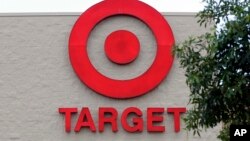Chief executives of some of America's largest retailers, including Target Corp. and Best Buy Co. Inc., are headed to Washington this week to make their case that a controversial tax on imports would raise consumer prices and hurt their businesses, according to people familiar with the plan.
The group of eight retail bosses, that also includes chief executives of Gap Inc. and Autozone Inc., will meet on Wednesday with Kevin Brady, chairman of the tax-writing House Ways and Means Committee, and with members of the Senate, four people said in recent days. Reuters could not confirm the full list of participants.
This is the first time well-known retail CEOs will descend on Washington as a group to try to make the case to kill the import tax proposal. Their input has more urgency as U.S. President Donald Trump is finalizing his own tax plan that he plans to unveil in the coming weeks.
It is not known if the group, including Target CEO Brian Cornell, Best Buy CEO Hubert Joly, GAP CEO Art Peck and Autozone CEO William Rhodes, will meet with Trump at the White House while in town, according to people familiar with ongoing discussions.
Brady and Speaker Paul Ryan are leading a House Republican push that would cut corporate income tax to 20 percent from 35 percent, exclude export revenue from taxable income and impose a 20 percent tax on imports. Companies that rely heavily on imports, such as retailers, automakers and refiners say a border tax will outweigh the benefit of a lower headline corporate tax.
Asked for confirmation of the meeting, Brian Dodge, a spokesman for the Retail Industry Leaders Association, told Reuters there was going to be a meeting this week but declined to provide further details.
The trade group is leading the industry's effort to oppose House Republicans' proposal for a border adjustability tax, running a coalition of more than 120 companies and trade organizations including Wal-Mart Stores Inc. and Walgreens Boots Alliance Inc.
Representatives for Target, Best Buy, Gap and AutoZone did not respond to requests for comment.
Trump has voiced some concern about the House tax proposal calling it "too complicated." But the White House also said previously that a border tax on goods from Mexico is one option under review to pay for a wall along the nation's southern border.
The prospect of a big import tax is also pitting some of the largest U.S. companies against one another. A group of major exporters including Boeing Co., General Electrics Co. and Pfizer Inc. have formed their own coalition to support the import tax.
Retailers have become the most vocal opponents to the proposal, saying a 20 percent tax on imported goods would cause prices to increase for consumers and erase any profits the companies currently make. Nearly all of the nation's clothing, shoes and electronics are imported into the United States, as well as foods that cannot be grown domestically, like coffee and palm oil.
The largest U.S. electronics retailer, Best Buy, for example, has circulated a flyer to lawmakers, which cites an analyst forecast that a 20 percent tax would wipe out the company's projected annual net income of $1 billion and turn it into a $2 billion loss.





